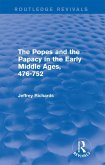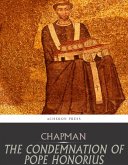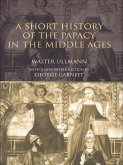A complete reappraisal of the papacy of Honorius II, highlighting the strategies to which this pontificate turned in order to govern ecclesiastical institutions and to deal with secular matters.
The papacy of Honorius II (1124-1130) has often been overlooked by historians, usually considered uneventful, transitional and colourless. This book offers a complete reappraisal, drawing on a detailed examination of the surviving letters produced by the papal chancery to show that conversely, it was a vital and innovative pontificate. It argues that during what was a stabilising period for the papacy in an era of peace, Honorius and the chancery were able to enact the instruments and ecclesiological claims dictated by external threats and produced during previous papacies. In particular, it shows that by adapting the content and form of the letters it issued, Honorius's chancery, led by the official Haimeric, played a decisive role in extending the ecclesiological thinking of the papacy. Furthermore, these years paved the way for ideas which were further developed later in the twelfth century, especially the arguments created by the warring parties in the Schism of 1130 to legitimise their respective popes.
This study thus presents a different view of Honorius' administration, highlighting the strategies to which the papacy turned in order both to govern ecclesiastical institutions and to deal with secular matters, when previous protocols and routines could no longer be relied upon.
The papacy of Honorius II (1124-1130) has often been overlooked by historians, usually considered uneventful, transitional and colourless. This book offers a complete reappraisal, drawing on a detailed examination of the surviving letters produced by the papal chancery to show that conversely, it was a vital and innovative pontificate. It argues that during what was a stabilising period for the papacy in an era of peace, Honorius and the chancery were able to enact the instruments and ecclesiological claims dictated by external threats and produced during previous papacies. In particular, it shows that by adapting the content and form of the letters it issued, Honorius's chancery, led by the official Haimeric, played a decisive role in extending the ecclesiological thinking of the papacy. Furthermore, these years paved the way for ideas which were further developed later in the twelfth century, especially the arguments created by the warring parties in the Schism of 1130 to legitimise their respective popes.
This study thus presents a different view of Honorius' administration, highlighting the strategies to which the papacy turned in order both to govern ecclesiastical institutions and to deal with secular matters, when previous protocols and routines could no longer be relied upon.
Dieser Download kann aus rechtlichen Gründen nur mit Rechnungsadresse in A, D ausgeliefert werden.









